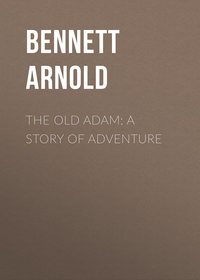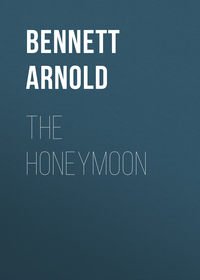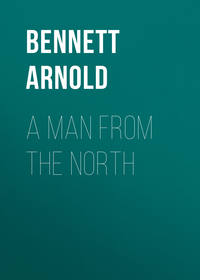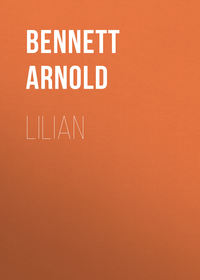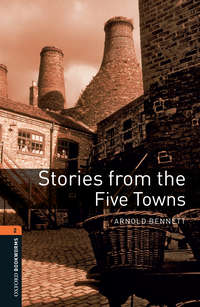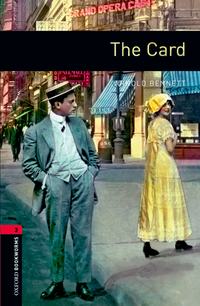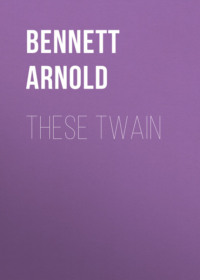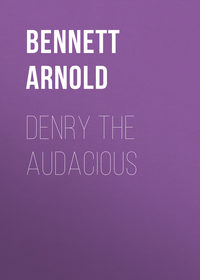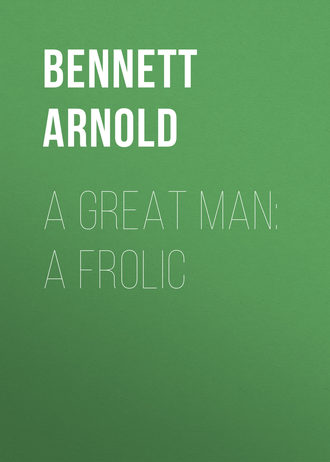 полная версия
полная версияA Great Man: A Frolic
The plotters sat back in their chairs and tried to keep their guilty eyes off the overturned basin. 'Two slices, Annie?' said Mr. Knight in a loud tone, elaborately casual. 'Yes, please,' said Aunt Annie. Mrs. Knight began to pour out coffee. They all three looked at each other, joyous, naughty, strategic; and the thing of which they were least conscious, in that moment of expectancy, was precisely the thing that the lustrous trifles hidden beneath the basin were meant to signalize: namely, the passage of years and the approach of age. Mr. Knight's hair was grey; Mrs. Knight, once a slim bride of twenty-seven, was now a stout matron of thirty-nine, with a tendency to pant after the most modest feats of stair-climbing; and Aunt Annie, only the other day a pretty girl with a head full of what is wrongly called nonsense, was a spinster – a spinster. Fortunately, they were blind to these obvious facts. Even Mr. Knight, accustomed as he was to survey fundamental truths with the detachment of a philosopher, would have been shocked to learn that his hair was grey. Before the glass, of a morning, he sometimes remarked, in the tone of a man whose passion for candour permits him to conceal nothing: 'It's getting grey.'
Then young Henry burst into the room.
It was exactly twelve years since he had been born, a tiny, shapeless, senseless, helpless, toothless, speechless, useless, feeble, deaf, myopic creature; and now he was a school-boy, strong, healthy, big, and clever, who could define a dodecahedron and rattle off the rivers of Europe like a house on fire. The change amounted to a miracle, and it was esteemed as such by those who had spent twelve years chiefly in watching it. One evening, in the very earliest stages, while his mother was nursing him, his father had come into the darkened chamber, and, after bending over the infant, had struck a match to ignite a cigar; and the eyes of the infant had blinked in the sudden light. 'See how he takes notice! the mother had cried in ecstatic wonderment. And from that moment she, and the other two, had never ceased to marvel, and to fear. It seemed impossible that this extraordinary fragment of humanity, which at first could not be safely ignored for a single instant night or day, should survive the multitudinous perils that surrounded it. But it did survive, and it became an intelligence. At eighteen months the intelligence could walk, sit up, and say 'Mum.' These performances were astounding. And the fact that fifty thousand other babies of eighteen months in London were similarly walking, sitting up, and saying 'Mum,' did not render these performances any the less astounding. And when, half a year later, the child could point to a letter and identify it plainly and unmistakably – 'O' – the parents' cup was full. The mother admitted frankly that she had not expected this final proof of understanding. Aunt Annie and father pretended not to be surprised, but it was a pretence merely. Why, it seemed scarcely a month since the miraculous child had not even sense enough to take milk out of a spoon! And here he was identifying 'O' every time he tried, with the absolute assurance of a philologist! True, he had once or twice shrieked 'O' while putting a finger on 'Q,' but that was the fault of the printers, who had printed the tail too small.
After that the miracles had followed one another so rapidly, each more amazing than the last, that the watchers had unaffectedly abandoned themselves to an attitude of permanent delighted astonishment. They lived in a world of magic. And their entire existence was based on the tacit assumption – tacit because the truth of it was so manifest – that their boy was the most prodigious boy that ever was. He went into knickerbockers. He learnt hymns. He went to school – and came back alive at the end of the first day and said he had enjoyed it! Certainly, other boys went to school. Yes, but there was something special, something indefinable, something incredible, about Henry's going to school that separated his case from all the other cases, and made it precious in its wonder. And he began to study arithmetic, geometry, geography, history, chemistry, drawing, Latin, French, mensuration, composition, physics, Scripture, and fencing. His singular brain could grapple simultaneously with these multifarious subjects. And all the time he was growing, growing, growing. More than anything else it was his growth that stupefied and confounded and enchanted his mother. His limbs were enormous to her, and the breadth of his shoulders and the altitude of his head. It puzzled her to imagine where the flesh came from. Already he was as tail as she, and up to Aunt Annie's lips, and up to his father's shoulder. She simply adored his colossal bigness. But somehow the fact that a giant was attending the Bloomsbury Middle School never leaked out.
'What's this?' Henry demanded, mystified, as he sat down to breakfast. There was a silence.
'What's what?' said his father gruffly. 'Get your breakfast.'
'Oh my!' Henry had lifted the basin.
'Had you forgotten it was your birthday?' Mrs. Knight asked, beaming.
'Well, I'm blest!' He had in truth forgotten that it was his birthday.
'You've been so wrapped up in this Speech Day business, haven't you?' said Aunt Annie, as if wishful to excuse him to himself for the extraordinary lapse.
They all luxuriated in his surprise, his exclamations, his blushes of delight, as he fingered the presents. For several days, as Henry had made no reference to his approaching anniversary, they had guessed that he had overlooked it in the exciting preparations for Speech Day, and they had been anticipating this moment with the dreadful joy of conspirators. And now they were content. No hitch, no anticlimax had occurred.
'I know,' said Henry. 'The watch is from father, and you've given me the chain, mother, and the knife is from Aunt Annie. Is there a thing in it for pulling stones out of horses' hoofs, auntie?' (Happily, there was.)
'You must make a good breakfast, dear; you've got a big day before you,' enjoined his mother, when he had thanked them politely, and assumed the watch and chain, and opened all the blades and other pleasant devices of the penknife.
'Yes, mother,' he answered obediently.
He always obeyed injunctions to eat well. But it would be unfair to Henry not to add that he was really a most obedient boy – in short, a good boy, a nice boy. The strangest thing of all in Henry's case was that, despite their united and unceasing efforts, his three relatives had quite failed to spoil him. He was too self-possessed for his years, too prone to add the fanciful charm of his ideas to no matter what conversation might be proceeding in his presence; but spoiled he was not.
The Speech Day which had just dawned marked a memorable point in his career. According to his mother's private notion, it would be a demonstration, and a triumphant demonstration, that, though the mills of God grind slowly, they grind exceeding small. For until that term, of which the Speech Day was the glittering conclusion, the surpassing merits and talents of her son had escaped recognition at the Bloomsbury Middle School. He had never reached the top of a form; he had never received a prize; he had never earned pedagogic praise more generous than 'Conduct fair – progress fair.' But now, out of the whole school, he had won the prize for Good Conduct. And, as if this was not sufficiently dazzling, he had also taken to himself, for an essay on 'Streets,' the prize for English Composition. And, thirdly, he had been chosen to recite a Shaksperean piece at the ceremony of prize-giving. It was the success in Composition which tickled his father's pride, for was not this a proof of heredity? Aunt Annie flattered herself on the Good Conduct prize. Mrs. Knight exulted in everything, but principally in the prospective sight of her son at large on the platform delivering Shakspere to a hushed, attentive audience of other boys' parents. It was to be the apotheosis of Henry, was that night!
'Will you hear me, father?' Henry requested meekly, when he had finished the first preparations for his big day, and looked at the time, and cut a piece of skin from the palm of his hand, to the horror of his mother and aunt. 'Will you hear me, father?'
(No! I assure you he was not a detestable little prig. He had been brought up like that.)
And Mr. Knight took Staunton's Shakspere from the bookcase and opened it at Othello, Act I., scene iii., and Henry arose and began to explain to the signiors of Venice in what manner Desdemona had fallen in love with him and he with Desdemona; how he told Desdemona that even from his boyish days he had experienced moving accidents by flood and field, and had been sold into slavery, and all about the cannibals and the – but he came to utter grief at the word Anthropophagi.'
'An-thro-poph-a-gi,' said his father.
'It's a very difficult word, I'm sure,' said his mother.
Difficult or not, Henry mastered it, and went on to the distressful strokes his youth had suffered, and then to Desdemona's coy hint:
'Upon this hint I spoke – spake, I mean;She loved me for the dangers I had passed,And I loved her that she did pity them.This only is the witchcraft I have used.Here comes the lady; let her witness it.''Have a bit of toast, my pet,' Mrs. Knight suggested.
The door opened at the same moment.
'Enter Desdemona,' said a voice. 'Now do go light on the buttered toast, Othello. You know you'll be ill.'
It was Cousin Tom. He was always very late for breakfast.
CHAPTER V
MARRONS GLACÉS
And Tom was always being inconvenient, always producing intellectual discomfort. On this occasion there can be no doubt that if Tom had not come in just then Henry would have accepted and eaten the buttered toast, and would have enjoyed it; and his father, mother, and aunt would have enjoyed the spectacle of his bliss; and all four of them would have successfully pretended to their gullible consciences that an indiscretion had not been committed. Here it must be said that the Achilles' heel of Henry Shakspere Knight lay in his stomach. Despite his rosy cheeks and pervading robustness, despite the fact that his infancy had been almost immune from the common ailments – even measles – he certainly suffered from a form of chronic dyspepsia. Authorities differed upon the cause of the ailment. Some, such as Tom, diagnosed the case in a single word. Mr. Knight, less abrupt, ascribed the evil to Mrs. Knight's natural but too solicitous endeavours towards keeping up the strength of her crescent son. Mrs. Knight and Aunt Annie regarded it as a misfortune simply, inexplicable, unjust, and cruel. But even Mrs. Knight and Aunt Annie had perceived that there was at least an apparent connection between hot buttered toast and the recurrence of the malady. Hence, though the two women would not admit that this connection was more than a series of unfortunate coincidences, Henry had been advised to deprive himself of hot buttered toast. And here came Tom, with his characteristic inconvenience, to catch them in the very midst of their folly, and to make even Mr. Knight, that mask of stern rectitude, a guilty accessory before the fact.
'It's only this once!' Mrs. Knight protested.
'You're quite right,'said Tom. 'It's only this once.'
Henry took the piece of toast, and then, summoning for one supreme effort all the spiritual courage which he had doubtless inherited from a long line of Puritan ancestors, he nobly relinquished it.
Mr. Knight's eyes indicated to Tom that a young man who was constantly half an hour late for breakfast had no moral right to preach abstinence to a growing boy, especially on his birthday. But the worst thing about Tom was that he was never under any circumstances abashed.
'As nothing is worse than hot toast cold,' Tom imperturbably remarked, 'I'll eat it at once.' And he ate the piece of toast.
No one could possibly blame Tom. Nevertheless, every soul round the table did the impossible and blamed him. The atmosphere lost some of its festive quality.
Tom Knight was nineteen, thin, pale, and decidedly tall; and his fair hair still curled slightly on the top of his head. In twelve years his development, too, had amounted to a miracle, or would have amounted to a miracle had there been anyone present sufficiently interested to observe and believe in it. Miracles, however, do not begin to exist until at least one person believes, and the available credence in the household had been monopolized by Tom's young cousin. The great difference between Tom and Henry was that Tom had faults, whereas Henry had none – yet Tom was the elder by seven years and ought to have known better! Mr. Knight had always seen Tom's faults, but it was only since the advent of Henry that Mrs. Knight, and particularly Aunt Annie, had begun to see them. Before Henry arrived, Tom had been Aunt Annie's darling. The excellent spinster took pains never to show that Henry had supplanted him; nevertheless, she showed it all the time. Tom's faults flourished and multiplied. There can be no question that he was idle, untruthful, and unreliable. In earliest youth he had been a merry prank; he was still a prank, but not often merry. His spirit seemed to be overcast; and the terrible fact came out gradually that he was not 'nicely disposed.' His relatives failed to understand him, and they gave him up like a puzzle. He was self-contradictory. For instance, though a shocking liar, he was lavish of truth whenever truth happened to be disconcerting and inopportune. He it was who told the forewoman of his uncle's millinery department, in front of a customer, that she had a moustache. His uncle threshed him. 'She has a moustache, anyhow!' said this Galileo when his uncle had finished. Mr. Knight wished Tom to go into the drapery, but Tom would not. Tom wanted to be an artist; he was always drawing. Mr. Knight had only heard of artists; he had never seen one. He thought Tom's desire for art was mere wayward naughtiness. However, after Tom had threatened to burn the house down if he was not allowed to go to an art-school, and had carried out his threat so far as to set fire to a bale of cotton-goods in the cellar, Mr. Knight yielded to the whim for the sake of peace and a low temperature. He expansively predicted ultimate disaster for Tom. But at the age of eighteen and a half, Tom, with his habit of inconvenience, simply fell into a post as designer to a firm of wholesale stationers. His task was to design covers for coloured boxes of fancy notepaper, and his pay was two guineas a week. The richness of the salary brought Mr. Knight to his senses; it staggered, sobered, and silenced him. Two guineas a week at eighteen and a half! It was beyond the verge of the horizons of the drapery trade. Mr. Knight had a shop-walker, aged probably thirty-eight and a half, who was receiving precisely two guineas a week, and working thirty hours a week longer than Tom.
On the strength of this amazing two guineas, Tom, had he chosen, might easily have regained the long-lost esteem of his relatives. But he did not choose. He became more than ever a mystery to them, and a troubling mystery, not a mystery that one could look squarely in the face and then pass by. His ideals, if they could be called ideals, were always in collision with those of the rest of the house. Neither his aunts nor his uncle could ever be quite sure that he was not enjoying some joke which they were not enjoying. Once he had painted Aunt Annie's portrait. 'Never let me see that thing again!' she exclaimed when she beheld it complete. She deemed it an insult, and she was not alone in her opinion. 'Do you call this art?' said Mr. Knight. 'If this is art, then all I can say is I'm glad I wasn't brought up to understand art, as you call it.' Nevertheless, somehow the painting was exhibited at South Kensington in the national competition of students works, and won a medal. 'Portrait of my Aunt,' Tom had described it in the catalogue, and Aunt Annie was furious a second time. 'However,' she said, 'no one'll recognise me, that's one comfort!' Still, the medal weighed heavily; it was a gold medal. Difficult to ignore its presence in the house!
Tom's crowning sin was that he was such a bad example to Henry. Henry worshipped him, and the more Tom was contemned the more Henry worshipped.
'You'll surely be very late, Tom,' Mrs. Knight ventured to remark at half-past nine.
Mr. Knight had descended into the shop, and Aunt Annie also.
'Oh no,' said Tom – 'not more than is necessary.' And then he glanced at Henry. 'Look here, my bold buccaneer, you've got nothing to do just now, have you? You can stroll along with me a bit, and we'll see if we can buy you a twopenny toy for a birthday present.'
Tom always called Henry his 'bold buccaneer.' He had picked up the term of endearment from the doctor with the black bag twelve years ago. Henry had his cap on in two seconds, and Mrs. Knight beamed at this unusual proof of kindly thought on Tom's part.
In the street Tom turned westwards instead of to the City, where his daily work lay.
'Aren't you going to work to-day?' Henry asked in surprise.
'No,' said Tom. 'I told my benevolent employers last night that it was your birthday to-day, and I asked whether I could have a holiday. What do you think they answered?'
'You didn't ask them,' said Henry.
'They answered that I could have forty holidays. And they requested me to wish you, on behalf of the firm, many happy returns of the day.'
'Don't rot,' said Henry.
It was a beautiful morning, sunny, calm, inspiriting, and presently Tom began to hum. After a time Henry perceived that Tom was humming the same phrase again and again: 'Some streets are longer than others. Some streets are longer than others.'
'Don't rot, Tom,' Henry pleaded.
The truth was that Tom was intoning a sentence from Henry's prize essay on streets. Tom had read the essay and pronounced it excellent, and till this very moment on the pavement of Oxford Street Henry had imagined Tom's verdict to be serious. He now knew that it was not serious.
Tom continued to chant, with pauses: 'Some streets are longer than others… Very few streets are straight… But we read in the Bible of the street which is called Straight… Oxford Street is nearly straight… A street is what you go along… It has a road and two footpaths.'
Henry would have given his penknife not to have written that essay. The worst of Tom was that he could make anything look silly without saying that it was silly – a trick that Henry envied.
Tom sang further: 'In the times before the French Revolution the streets of Paris had no pavements … e. g., they were all road… It was no infrequent occurrence for people to be maimed for life, or even seriously injured, against walls by passing carriages of haughty nobles.'
'I didn't put "haughty,"' Henry cried passionately.
'Didn't you?' Tom said with innocence. 'But you put "or even seriously injured."'
'Well?' said Henry dubiously.
'And you put "It was no infrequent occurrence." Where did you steal that from, my bold buccaneer?'
'I didn't steal it,' Henry asserted. 'I made it up.'
'Then you will be a great writer,' Tom said. 'If I were you, I should send a telegram to Tennyson, and tell him to look out for himself. Here's a telegraph-office. Come on.'
And Tom actually did enter a doorway. But it proved to be the entrance to a large and magnificent confectioner's shop. Henry followed him timidly.
'A pound of marrons glacés,' Tom demanded.
'What are they?' Henry whispered up at Tom's ear.
'Taste,' said Tom, boldly taking a sample from the scales while the pound was being weighed out.
'It's like chestnuts,' Harry mumbled through the delicious brown frosted morsel. 'But nicer.'
'They are rather like chestnuts, aren't they?' said Tom.
The marrons glacés were arranged neatly in a beautiful box; the box was wrapped in paper of one colour, and then further wrapped in paper of another colour, and finally bound in pink ribbon.
'Golly!' murmured Henry in amaze, for Tom had put down a large silver coin in payment, and received no change.
They came out, Henry carrying the parcel.
'But will they do me any harm?' the boy asked apprehensively.
The two cousins had reached Hyde Park, and were lying on the grass, and Tom had invited Henry to begin the enterprise of eating his birthday present.
'Harm! I should think not. They are the best things out for the constitution. Not like sweets at all. Doctors often give them to patients when they are getting better. And they're very good for sea-sickness too.'
So Henry opened the box and feasted. One half of the contents had disappeared within twenty minutes, and Tom had certainly not eaten more than two marrons.
'They're none so dusty!' said Henry, perhaps enigmatically. 'I could go on eating these all day.'
A pretty girl of eighteen or so wandered past them.
'Nice little bit of stuff, that!' Tom remarked reflectively.
'What say?'
'That little thing there!' Tom explained, pointing with his elbow to the girl.
'Oh!' Henry grunted. 'I thought you said a nice little bit of stuff.'
And he bent to his chestnuts again. By slow and still slower degrees they were reduced to one.
'Have this,' he invited Tom.
'No,' said Tom. 'Don't want it. You finish up.'
'I think I can't eat any more,' Henry sighed.
'Oh yes, you can,' Tom encouraged him. 'You've shifted about fifty. Surely you can manage fifty-one.'
Henry put the survivor to his lips, but withdrew it.
'No,' he said. 'I tell you what I'll do: I'll put it in the box and save it.'
'But you can't cart that box about for the sake of one chestnut, my bold buccaneer.'
'Well, I'll put it in my pocket.'
And he laid it gently by the side of the watch in his waistcoat pocket.
'You can find your way home, can't you?' said Tom. 'It's just occurred to me that I've got some business to attend to.'
A hundred yards off the pretty girl was reading on a seat. His business led him in that direction.
CHAPTER VI
A CALAMITY FOR THE SCHOOL
It was a most fortunate thing that there was cold mutton for dinner. The economic principle governing the arrangement of the menu was that the simplicity of the mutton atoned for the extravagance of the birthday pudding, while the extravagance of the birthday pudding excused the simplicity of the mutton. Had the first course been anything richer than cold mutton, Henry could not have pretended even to begin the repast. As it was, he ate a little of the lean, leaving a wasteful margin of lean round the fat, which he was not supposed to eat; he also nibbled at the potatoes, and compressed the large remnant of them into the smallest possible space on the plate; then he unobtrusively laid down his knife and fork.
'Come, Henry,' said Aunt Annie, 'don't leave a saucy plate.'
Henry had already pondered upon a plausible explanation of his condition.
'I'm too excited to eat,' he promptly answered.
'You aren't feeling ill, are you?' his mother asked sharply.
'No,' he said. 'But can I have my birthday pudding for supper, after it's all over, instead of now?'
Mrs. Knight and Aunt Annie looked at one another. 'That might be safer,' said Aunt Annie, and she added: 'You can have some cold rice pudding now, Henry.'
'No, thank you, auntie; I don't want any.'
'The boy's ill,' Mrs. Knight exclaimed. 'Annie, where's the Mother Seigel?'
'The boy's no such thing,' said Mr. Knight, pouring calmness and presence of mind over the table like oil. 'Give him some Seigel by all means, if you think fit; but don't go and alarm yourself about nothing. The boy's as well as I am.'
'I think I should like some Seigel,' said the boy.
Tom was never present at the mid-day meal; only Mrs. Knight knew that Henry had been out with him; and Mrs. Knight was far too simple a soul to suspect the horrid connection between the morning ramble and this passing malaise of Henry's. As for Henry, he volunteered nothing.
'It will pass off soon,' said Aunt Annie two hours later. The time was then half-past three; the great annual ceremony of Speech Day began at half-past seven. Henry reclined on the sofa, under an antimacassar, and Mrs. Knight was bathing his excited temples with eau de Cologne.
'Oh yes,' Mr. Knight agreed confidently; he had looked in from the shop for a moment. 'Oh yes! It will pass off. Give him a cup of strong tea in a quarter of an hour, and he'll be as right as a trivet.'


